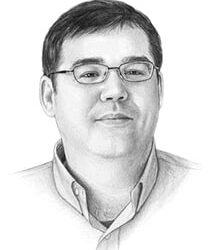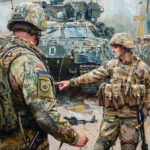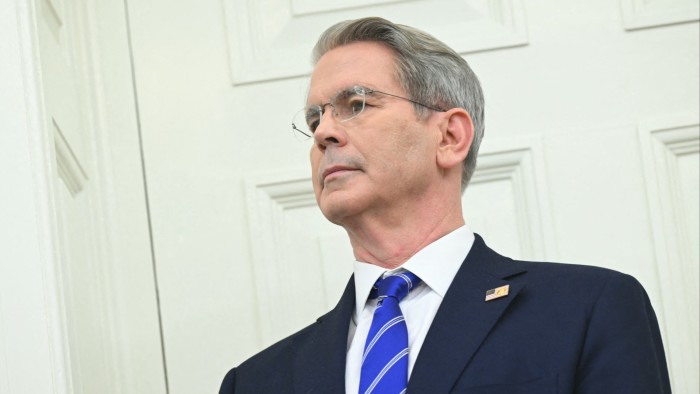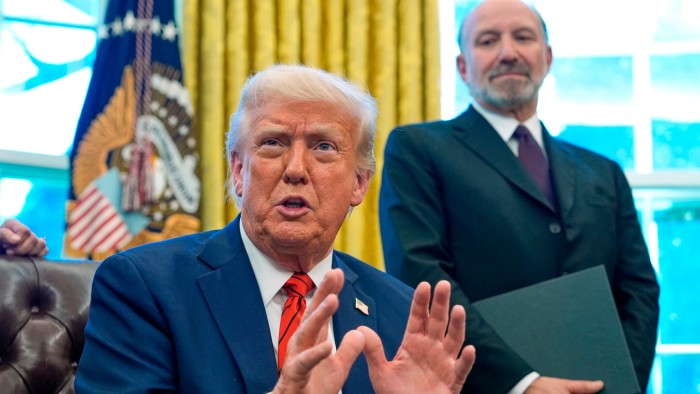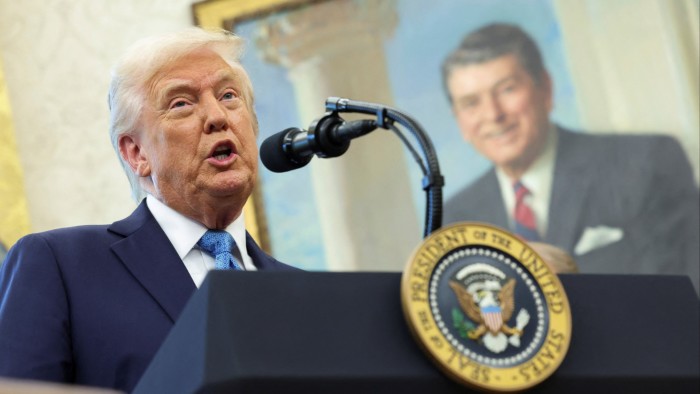Who could be the next pope?

The end of Pope Francis’s tumultuous papacy has ignited a fierce contest for leadership of the world’s 1.4bn Catholics, with the church deeply divided over its future direction.
Of the 135 cardinals who will participate in the secretive Vatican conclave a few weeks after the pope’s death, about two dozen are considered “papabili” — or “pope material” in Italian — potential successors to Francis.
The runners and riders reflect the changing demography of a global church growing rapidly in Africa and Asia while declining in its traditional European heartland — as well as the ideological battle between those committed to Catholic dogma and those wanting to promote a more inclusive church.
“There is a strong divide in the college of cardinals between those who think we should keep going in the same direction [as Francis] and those who think we need to make a U-turn,” said John Allen Jr, editor of Crux, a Catholic media organisation. “Neither of those two constituencies will get exactly what they want.”
Among the cardinals who have been tipped as potential papal successors are the following:
Cardinal Pietro Parolin
Vatican Secretary of State
Parolin, Francis’s second-in-command, currently runs the Holy See’s administrative machinery and is seen as a continuity figure who would pursue the late pope’s goals of greater inclusivity and social engagement. Still, his tenure has been marred by his apparent inability to fix the church’s notoriously mismanaged and now deeply strained finances.
A career diplomat, the 70-year-old Italian prelate previously represented the Holy See in Nigeria, Mexico and Venezuela and helped restore the Vatican’s relations with Beijing, though critics say China’s Communist party now has too much influence over bishop appointments there.

Cardinal Matteo Zuppi
Archbishop of Bologna
A Roman “street priest” with family ties to the Vatican, Zuppi is known for his commitment to social justice and concern for society’s poorest and most marginalised, his embrace of divorced and LGBT+ Catholics and engagement with other religious groups.
Zuppi, 69, helped mediate the peace process that ended Mozambique’s devastating civil war in 1992, and recently served as Francis’s special envoy for Ukraine, involved in efforts to try to persuade Moscow to return Ukrainian children forcibly taken to Russia.

Cardinal Pierbattista Pizzaballa
Latin Patriarch of Jerusalem
A wild card due to his relative youth, 60-year-old Pizzaballa has spent more than three decades in Jerusalem, including as custodian of holy sites linked to the life of Jesus. He is credited with bringing the Latin Patriarchate of Jerusalem back from the verge of bankruptcy after being appointed its administrator in 2016.
The Hebrew-speaking Italian prelate offered himself in exchange for Israeli hostages after Hamas’s attack on Israel, and has condemned both the October 7 2023 onslaught and the Israeli bombardment of Gaza. He is considered capable of connecting with all faiths and political communities.

Cardinal Robert Sarah
Emeritus
An outspoken conservative, Sarah, 79, occasionally clashed with Guinea’s then-socialist dictatorship as archbishop of the capital Conakry in the 1980s. He joined the Holy See in Rome in 2001, first overseeing international missionary efforts, then running the liturgy department.
Sarah co-wrote a book with Pope Benedict defending the requirement for priestly celibacy. He is a popular speaker on the traditionalist Catholic circuit, criticising Francis’s liberal tendencies, including his ruling that allowed some blessings for same-sex couples.

Cardinal Fridolin Ambongo Besungu
Archbishop of Kinshasa
Ambongo, 65, is a social justice advocate, tackling issues such as exploitation of natural resources in his native Democratic Republic of Congo, as well as inequality, corruption and environmental protection — often pitting him against his government. Deeply conservative on family values, he led African bishops’ rejection of guidance allowing informal blessings for same-sex couples, calling such unions “intrinsically evil” and contrary to Africa’s “cultural ethos”.
Critics say Ambongo has failed to inspire a new generation of priests, which has led to a manpower shortage in his own busy archdiocese.

Cardinal Luis Tagle
Pro-Prefect of the Dicastery for Evangelisation
Born and raised in the Philippines and partly educated in the US, Tagle is a popular figure, with pastoral and administrative experience from his years in the Philippine church, including as archbishop of Manila.
Sometimes described as an “Asian Francis” due to his moderate reformist approach, Tagle, 67, tends to use his pulpit to address social justice issues rather than personal sexual morality, and urges understanding for Catholics non-compliant with orthodox doctrine.
The soft-spoken scholar has worked for papal bureaucracy in Rome since 2019 and has a strong media presence and his own YouTube channel.

Cardinal Jean-Marc Noel Aveline
Archbishop of Marseille
Born in Algeria, Aveline, 66, was among those who fled to France when Algeria gained independence in 1962. Raised in a religiously diverse, working-class Marseille neighbourhood, the French prelate is acutely sensitive to the plight of migrants and actively promotes interfaith dialogue.
Aveline — who holds a doctorate in theology and studied philosophy at the Sorbonne — is seen as a unifying figure, even as he advocates greater decentralisation of the church. He has served in educational and administrative roles, and has close ties with Francis.

Cardinal Péter Erdő
Archbishop of Esztergom-Budapest
Raised in a devout Catholic family while his native Hungary was under Communist rule, Erdő, 72, studied theology in Rome then spent three decades in academia, teaching and writing on topics from medieval canon law to Covid-19’s impact on education in Africa.
A traditionalist, Erdő has led European and international gatherings of bishops including on issues around the family. Focused on the individual’s relationship with God, he is likely to restore the primacy of religious teachings after Francis’s reformist efforts.

Cardinal Robert Francis Prevost
Prefect of the Dicastery for Bishops
Prevost is not typically considered “papabile”, but his name is circulating as a compromise candidate who could find broad support in a divided church, especially given his managerial expertise.
The Chicago native, 69, spent decades teaching and serving in Peru, later administering troubled dioceses, while serving as a member of the Peruvian bishops’ conference.
At the Holy See since 2023, Prevost now runs the curia’s department for bishop appointments.

